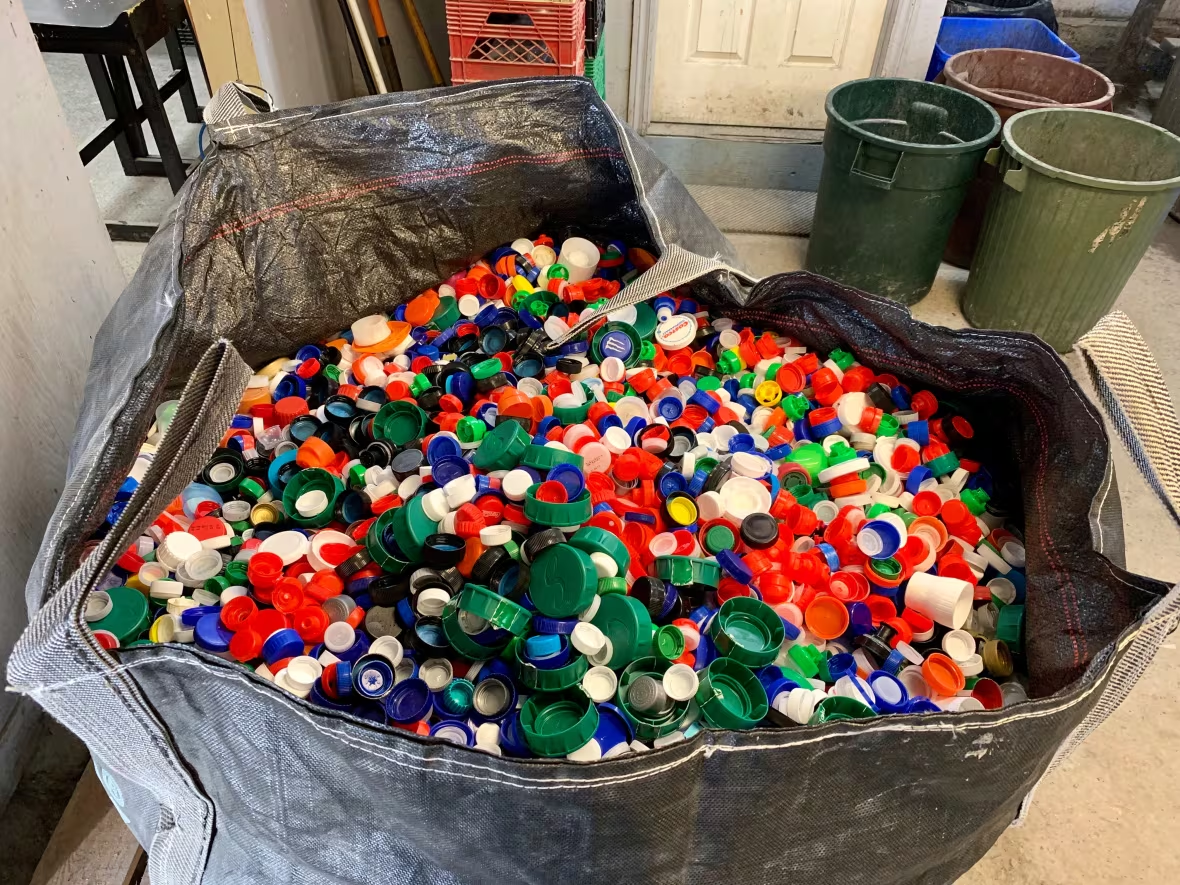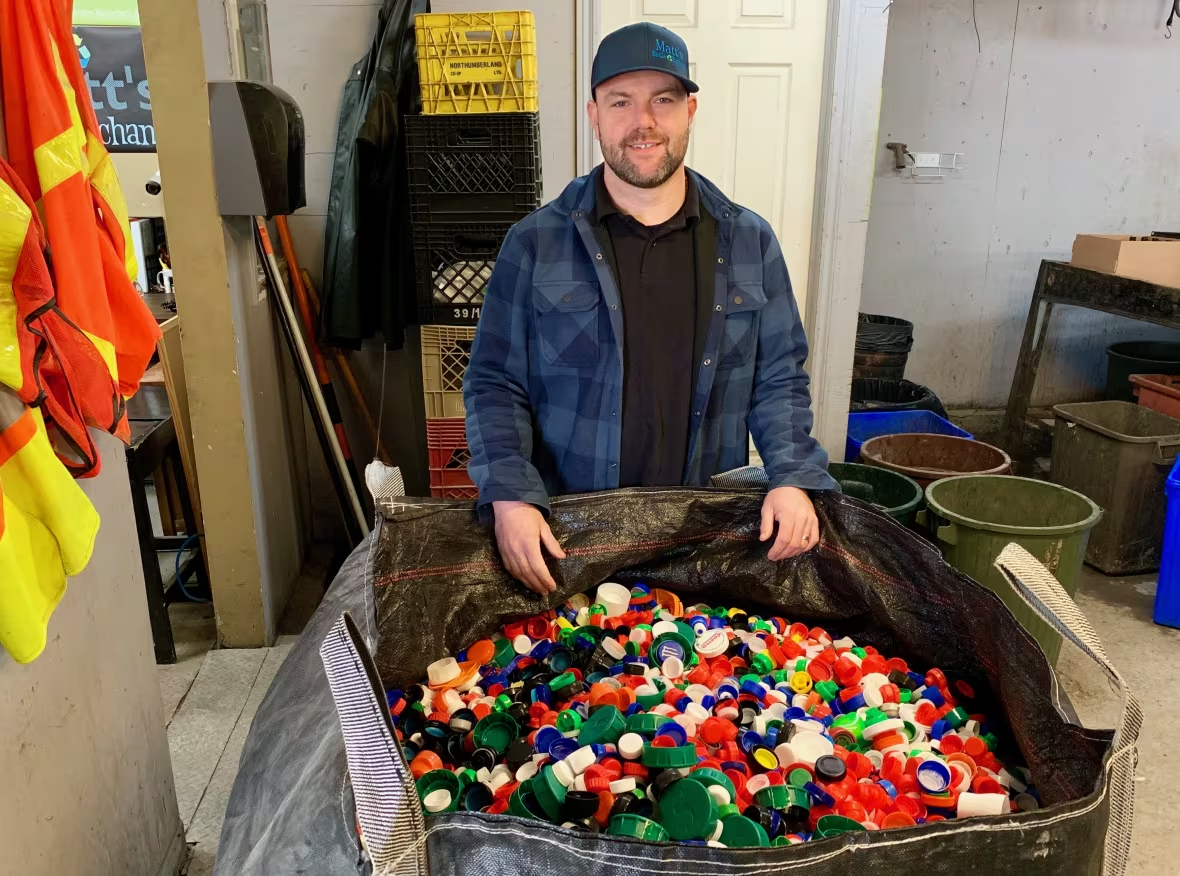Plastic bottle caps to be used in waste-water treatment
Pilot project in Canso, N.S., aims to give second life to something often thrown in trash

Waves of Change is a CBC series exploring the single-use plastic we're discarding, and why we need to clean up our act. You can be part of the community discussion by joining our Facebook group.
Instead of being tossed in the trash, plastic bottle caps will soon be deployed in a pilot project in Canso, N.S., to help break down waste water at a local treatment plant.
The hope is the caps will provide a good place for certain bacteria to attach and create a "biofilm" that then consumes and biogrades pollutants in incoming waste water.
"By using bottle caps you're able to increase the surface area and provide a better environment for those bacteria to grow and survive," said Robert Anderson, an environmental consultant working on the project.
The goals of the program are twofold. It would mean less plastic gets thrown into the garbage and taken to landfills. It could also reduce costs related to waste-water treatment.
There are 350 water-treatment facilities in Nova Scotia and most of them need to import specialized plastic pieces to perform the task the bottle caps may be able to take on.
"What we are going to do in Canso and in another smaller commercial system is put these caps in one half of the system," said Anderson. "Then we'll be able to monitor the original part and then compare it to the system with the caps in it through laboratory analysis."

The caps will likely be put in the waste water in Canso late next month.
The caps are being collected from approximately 60 recycling depots around the province, according to Matt Beazley, the operator of Matt's Bottle Exchange in Eastern Passage, N.S.
He said he's been seeing certain groups working hard to gather caps.
"One of the biggest is church groups and seniors," said Beazley. "A lot of these people are doing so many wonderful things and they realize this is one thing they never knew what to do with or where it could go or how it could be used."

The project is not limited to plastic bottle caps.
The plastic tops from condiment containers, pill bottles, laundry detergent and even jugs of windshield washer fluid will be accepted as long as they are no wider than five centimetres.
Beazley said people should bring their caps in a separate container or bag.
- Read more stories from CBC's Waves of Change project
- Discuss how we can reduce plastic pollution in our Facebook group
- Have a story idea or feedback? Email us: wavesofchange@cbc.ca